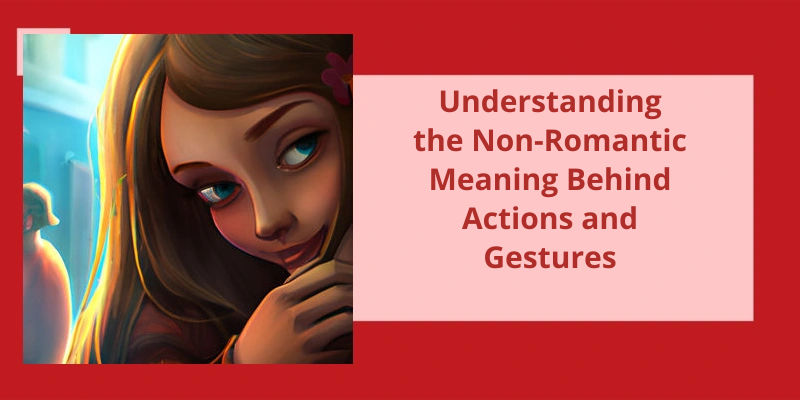Hiding one's true intentions can be a tricky business. It requires a certain level of cunning and deception in order to keep others from discovering what one is really up to. This is why there is a special word for it: dissimulation. Dissimulation is the act of concealing one's true motives, feelings, or beliefs in order to avoid detection or unwanted consequences. It is a form of deception that can be used to manipulate or deceive others, and it is often used in politics, business, and other areas of life.
What is the word for disguising or concealing one’s intentions?
Dissembling is a complex form of deception that can be used to hide ones true intentions or feelings. It is a way of masking the truth and can be used to manipulate or deceive others. It is important to be aware of this type of deception and to be able to recognize it when it is used.
Dissembling is a powerful tool that can be used to manipulate or deceive others. It is important to be aware of this type of deception and to be able to recognize it when it is used. By understanding the concept of dissembling, one can be better prepared to protect themselves from being taken advantage of or deceived.
What is the term for someone who conceals their true motives?
Impostors are a serious problem in society, as they can cause a great deal of harm to those they deceive. It is important to be aware of the signs of an impostor and to take steps to protect yourself from becoming a victim.
Impostors can be dangerous and damaging, but with the right knowledge and precautions, it is possible to protect yourself from becoming a victim. It is important to be aware of the signs of an impostor and to take steps to ensure that you are not deceived.
What is a term for covert intentions?
It is clear that there are many words that can be used to describe a hidden agenda. These words include incentive motivation, ulterior motive, deeper meaning, motive, reason, score to settle, agenda, mental reservation, and arriere-pensee. Each of these words has its own unique connotation and can be used to describe a hidden agenda in different ways.
A hidden agenda can be a powerful tool in any situation, and it is important to be aware of the different words that can be used to describe it. Knowing the different words that can be used to describe a hidden agenda can help to better understand the situation and make more informed decisions.
What is the term for attempting to conceal something?
Concealment is an important tool for protecting valuable items and information. It is a powerful way to keep things hidden from those who would seek to take advantage of them. By using concealment, individuals and organizations can ensure that their possessions and data remain safe and secure.
Concealment is a powerful tool that can be used to protect valuable items and information. It is an effective way to keep things hidden from those who would seek to take advantage of them. By using concealment, individuals and organizations can ensure that their possessions and data remain safe and secure, and that their privacy is respected.
Evading the truth.
Prevarication is a form of deception that can be used to avoid telling the truth. It is a form of equivocation that can be used to mislead or deceive someone. Prevarication can be used to avoid answering a question or to avoid giving a direct answer.
Prevarication is a form of deception that can be used to avoid telling the truth. It is a form of equivocation that can be used to mislead or deceive someone. Prevarication can be used to avoid answering a question or to avoid giving a direct answer. It is important to be aware of the potential consequences of prevaricating, as it can lead to mistrust and confusion. It is best to be honest and direct when communicating with others.
The word that describes a hidden agenda is “ulterior”.
It is clear that the accused had a hidden agenda, which was likely a secret plan, motive, or intention. This agenda was not revealed to the public, and it is unknown what the accused were trying to achieve.
The accused were found to have a hidden agenda, which could have been a secret plan, motive, or intention. The true nature of this agenda remains a mystery, and it is unclear what the accused were attempting to accomplish.
What is the term for omitting part of the truth?
It is clear that the word “lie” is a blunt term that imputes dishonesty. However, there are other words that can be used to replace it, such as equivocate. Equivocate can be used when someone is trying to avoid telling the truth or when they are trying to mislead someone. It is important to be aware of the different words that can be used to replace “lie” in order to better understand the context of a conversation.
What is the term for concealing one’s identity?
Going incognito is a great way to do something without being recognized. It is interesting to note that the words recognize and incognito are both derived from the Latin verb cognoscere, which means “to get to know”. This shows that when you go incognito, you are actively trying to avoid being recognized.
Incognito is a great way to do something without being recognized. It is a clever way to hide your true identity and avoid being identified. The words recognize and incognito are both derived from the Latin verb cognoscere, which means “to get to know”. This shows that when you go incognito, you are actively trying to avoid being recognized and known.
What is the definition of the word “obscure”?
Synonym chooser is a great tool for finding synonyms for words. It can help to expand your vocabulary and make your writing more interesting. Conceal is a great example of a word that has many synonyms, such as bury, hide, screen, and secrete.
Synonym Chooser is a useful tool for writers and students alike. It can help to make your writing more interesting and varied. Conceal is a great example of a word that has many synonyms, such as bury, hide, screen, and secrete. With Synonym Chooser, you can easily find the perfect synonym for any word.
Implied meaning
Concealed, obscure, and covert are all words that describe hidden meaning and hidden hostility. These words can be used to describe a variety of situations, from a persons inner thoughts to a political agenda. By understanding the implications of these words, we can better understand the hidden meaning and hostility that may be present in any given situation.
Hidden meaning and hidden hostility can be difficult to detect, but understanding the implications of words like concealed, obscure, and covert can help us to better recognize and address these issues. By being aware of the potential for hidden meaning and hostility, we can work to create a more open and understanding environment.
What is a synonym for disguise?
The words cloak, mask, and disguise all refer to the act of altering ones appearance or behavior in order to conceal their true identity. While all three words have similar meanings, disguise implies a more drastic change in order to mislead.
To sum up, cloak, mask, and disguise are all words used to describe the act of changing ones appearance or behavior in order to hide their true identity. While all three words have similar meanings, disguise implies a more drastic change in order to deceive.
What is the term for someone who keeps secrets?
Secretive is a word that implies reticence but usually carries a suggestion of deviousness and lack of frankness or of an often ostentatious will to conceal. It is important to note that there are other words that can be used to describe someone who is showing restraint in speaking, such as reserved, reticent, silent, and taciturn. Each of these words has its own unique connotations and should be used accordingly.
What is the term for having an ulterior motive?
It is clear that sheila had an ulterior motive for trying to help stan. Her true intentions were not made clear, but it is likely that she was hoping to gain something from the situation.
Sheilas ulterior motive for helping Stan remains a mystery, but it is clear that she had an agenda that was not made public. It is possible that she was hoping to gain something from the situation, but only she knows the truth.
Conclusion
Duplicity is a form of deception that can be used to manipulate or deceive others. It is a powerful tool that can be used to gain an advantage over someone else, but it can also be used to hurt and manipulate people. Duplicity can be used to create a false sense of security or to manipulate someone into doing something they would not normally do. While it can be used for good, it is important to remember that it can also be used for bad. Duplicity should be used with caution and only when absolutely necessary.






